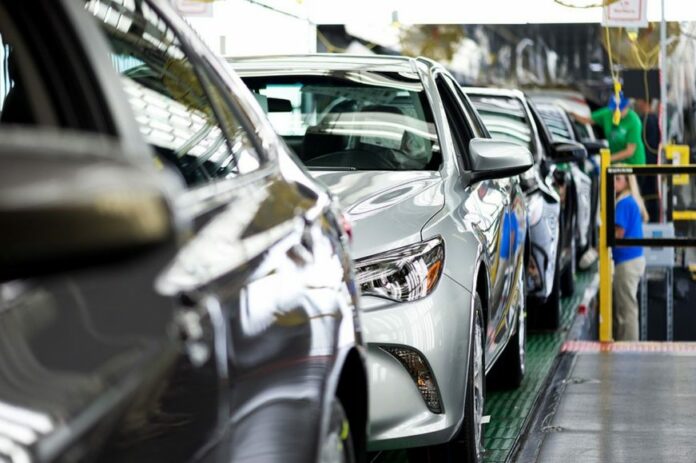Low visibility of women leaders (38.4%), gender stereotypes (38.1%), difficulties in maintaining work-life balance (35.1%), and unequal wages (34.4%) are hampering women’s career development in the automotive industry, according to “Automotive – Global HR Trends 2024” report by Gi Group Holding. Although globally, 80% of companies declare active engagement in creating a more inclusive work environment, a much smaller percentage actually implements these initiatives. Meanwhile, actively involving women can not only fill staffing gaps but also broaden the perspective of consumer needs.
“Data from the European Commission shows that women’s participation in the automotive sector is steadily increasing – in 2019 it was 16%, and in 2021 it has already reached 20%. However, even though women are increasingly bravely breaking the glass ceiling, there is still much to be done. To combat gender inequality, companies must first and foremost ensure equal pay for women and transparent career paths, while changing the image of the industry, which is still seen as non-inclusive, physically demanding, highly competitive, and pressurizing,” comments Karolina Popiel, Principal – Human Resources at Wyser.
More than just stereotypes
The Gi Group Holding “Automotive – Global HR Trends 2024” report shows that the main reason women do not pursue careers in the automotive sector is the lack of inspiring role models (38.4%), as well as the presence of stereotypes and perception of the industry as “typically male” (38.1%). Despite the fact that the law guarantees everyone an equal position in the labour market, many women still encounter additional barriers, as well as often lacking faith in their own competencies and abilities.
“Although the sector is dominated by men, it also has its women leaders. For example, Mary Teresa Barra, the CEO of General Motors, who started her career in the company at the age of 18, and Linda Jackson, the CEO of Peugeot – the first English woman to become a leader of one of the most recognizable automotive brands,” notes Joanna Wanatowicz, Managing Director of Grafton Recruitment.
Among the reasons why women do not plan careers in the automotive sector are also barriers related to maintaining work-life balance (35.1%), unequal pay (34.4%), as well as physical aspects (32%). Attracting women to the automotive sector is additionally difficult, as every third automotive company currently struggles with recruitment competition from other sectors.
Companies need to respond
Globally, 80% of companies declare active engagement in creating a more inclusive work environment, but differences are evident between different countries. According to the Gi Group Holding “Automotive – Global HR Trends 2024” report, Poland is not taking enough initiatives in this area, only ahead of Japan.
To counteract gender inequality, companies must first and foremost ensure equal pay for women and transparent career paths. This initiative has been indicated by 48% of companies in Poland. Other actions include: promoting women as role models and leaders (32%), and implementing flexible working conditions that meet women’s needs (48%). Globally, companies also organize training aimed at ensuring fair recruitment practices (39.4%) and cooperate with educational institutions to inspire young women to take up employment in the sector (37.1%).
“Employers are increasingly aware that the future of automotive is not possible without greater participation of women. Despite the efforts of many companies to adapt workplaces and encourage employment in the industry, much remains to be improved. The accelerated development of technology increasingly helps to attract talents and debunk the outdated myth of male domination. However, it is the role of decision-makers to build a narrative in which women feel welcome in the industry,” explains Agnieszka Szpoton, Office Director of the Association of Automotive and Industrial Employers, Lewiatan Confederation.
Consumer Needs Are Evolving
Greater female participation in the automotive sector has significant meaning in terms of labour demand. However, companies are starting to value women’s presence not only for their skills. They understand that progressive technological development, increasing ecological awareness, and broader use of artificial intelligence are transforming consumer expectations.
“Data show that women outperform men in terms of consumption. It’s worth noting that in the USA, they account for 62% of automotive industry clientele, and the number of women with driving licenses exceeds men by 1.4 million. Designing and advertising cars of the future without their participation deprives car manufacturers of the opportunity to understand and cater to women consumers’ needs and preferences,” concludes Agnieszka Żak, Regional Director of Gi Group Poland S.A.


















